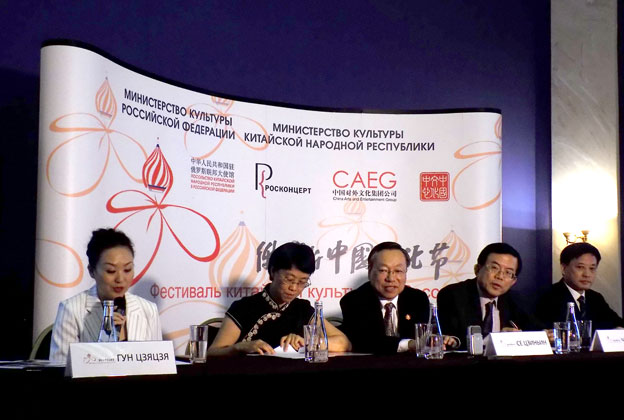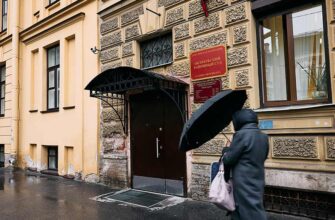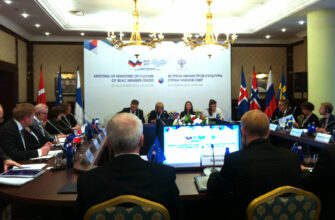On July 04, 2016 in Moscow at the Central Academic theatre of the Russian army, the official opening of the Chinese culture Festival in Russia was held, which was attended by Deputy Chairman of Russian Government Olga Golodets and Vice Premier of China Liu Yandun.
Before the opening ceremony of the Chinese culture Festival press conference was held with the participation of Director General of Bureau of external cultural relations Ministry of culture China Xie Tszinlin, President of the China Arts Entertainment Group (CAEG), Zhang Yu, General Director of media of the Municipal administration of the city of Tianjin, Huang Ungana and Director of the Eurasia Department of the Bureau of external relations Ministry of culture China Gong Jiajia. We offer you a review of the opening of the Festival of Chinese culture taken at the event.
Despite the recent holding of the opening ceremony, festival events have already started and are held in the framework of cooperation between the Ministries of culture of the Russian Federation and China in the years 2014-2016, the organization of activities is provided by Rosconcert.
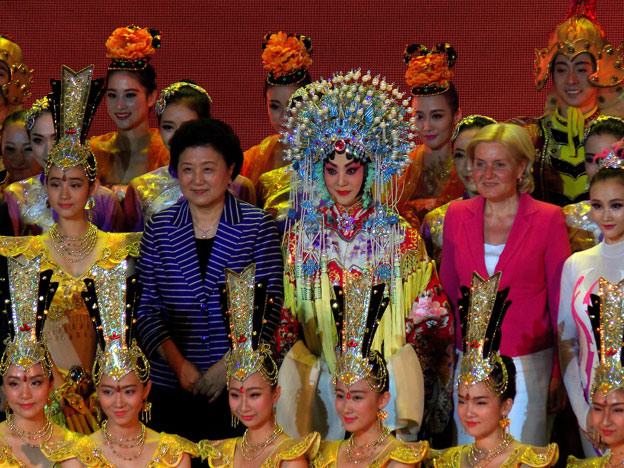
The goals and objectives of the Russian-Chinese cultural cooperation
According to Xie Tsingine, “the relations between China and Russia are stable and mature. The tradition of holding cultural festivals under the patronage of Ministries of Culture goes from 1990 to acquaint the residents with the culture of another country, as you know, also affects the political and economic interchange, leads to an increase of sympathy for another country and to increase trade between the two countries. The scope of cultural exchange between Russia and China has increased since 2006. Since then were held Years of language, tourism and other aspects of cultural cooperation.
This year is marked with 15 years Jubilee of the Treaty between Russia and China “On good-neighborliness, friendship and cooperation” and 20 years since the start of the strategic partnership between the two countries.
According to Olga Golodets, “China and Russia have 4’200 km of common borders, good neighbourly relations which are taught by our leaders and annually between the two countries is held over 200 joint activities. One of the clearest examples is the Russian is Chinese youth orchestra under the direction of V. Gergiev.
«Our dream, said Zhang Yu, President of CAEG, is to spread Chinese culture to a large part of Russia».
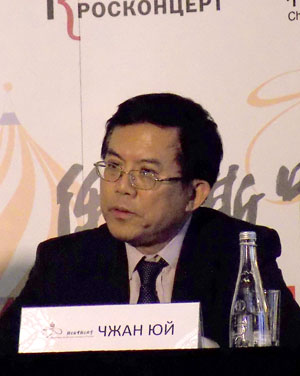
The contents of the Russian-Chinese cultural cooperation
In an interview with E-Vesti Zhang Yu commented on areas for enhanced cooperation:
E-Vesti: How do You assess this year’s Festival of Chinese culture? We believe that the dynamics of increasing cooperation between the two countries is reflected in the range of activities and we need to further deepen the exchange of information.
Zhang Yu: I totally share Your point of view. It seems to me that if we talk about the intensification of the interchange, you should not be limited in capitals. And I am very pleased that this year it is expanding in different Chinese and Russian cities. It’s very important and very good.
In 2016, compared with previous years, the festival is much more covered by the provinces of both countries, the event is not closed in the two capitals. The opening ceremony was attended by four creative team of Tianjin city: the Opera and ballet theatre, Civil and military school Ho Yangtze, a circus troupe and a Chinese creative group of people with disabilities. To Moscow the tour of Tianjin was held in Samara. During the year in different cities held different cultural events.
E-Vesti: Previously, the interest in Russian culture in China and Chinese culture in Russia was limited to elite circles. Now, thanks to tourism, ordinary people began to receive aesthetic pleasure from Your culture. You are program based on the General population or is it on elite?
Zhang Yu: Yes, indeed, this approach is consistent with ours. We would like to expand the circle of people interested in Chinese culture, at the expense of the masses. For example, I hope that every reader of e-News Express interest in Chinese culture. But I also hope that every reader of the people’s daily at the end of the Festival interested in Russian culture.
All of these groups demonstrated the highest professionalism of the presentations, mastery of the art and power of the country as a whole. The gathered audience in the hall were no empty seats) were warmly welcomed by the Chinese artists, especially admired her acrobatic and dance performances.
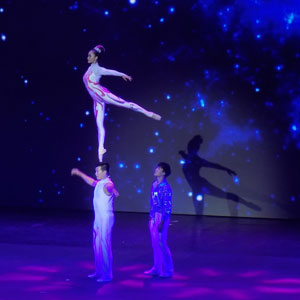
All events were self-explanatory leading, and it was altogether superfluous, if we take into account the complexity of the original millennia-old Chinese culture, different in its basis from Russian. Thus what was said by our interlocutor, are largely already been implemented at the festival, where the programme was “adapted” and is designed for untrained people.
So, Civil and military school of Wu-Shu master showed skill and fortitude of China in the application of the art of unarmed combat, Wushu, unexpected capabilities of the human body as a whole. Circus troupe brought an acrobatic ballet on shoulder. The Opera and ballet theatre, danced and sang about nature and harmony in the aesthetics of Chinese dance and Peking Opera tradition. Hearing-impaired dancers created a very spectacular image of the thousand-armed goddess of mercy.
E-Vesti: You bring here traditional Chinese? And where the Communist direction of art? Festival – beyond ideology?
Zhang Yu: As You well know, our Communist party holds a leading position in China, manages our public affairs. Accordingly, it was under her leadership we have made great strides in different spheres of culture: in classical, traditional and modern. All that we today show you made it under the leadership of our Communist party and our government.
Indeed, when we look at the level of Chinese singers, athletes, dancers, recall the days when our government generously supported by culture and sport in our country. Still, it was right and also gave good results…
The Chinese, paying homage to the receiving party, engaged in a program of popular song in Russian language “Russian man”, where it says it in the fire does not burn and does not sink in water. But the Russian Quartet Kvatro sang in Chinese.
The evening was very rich, easy and enjoyable.
